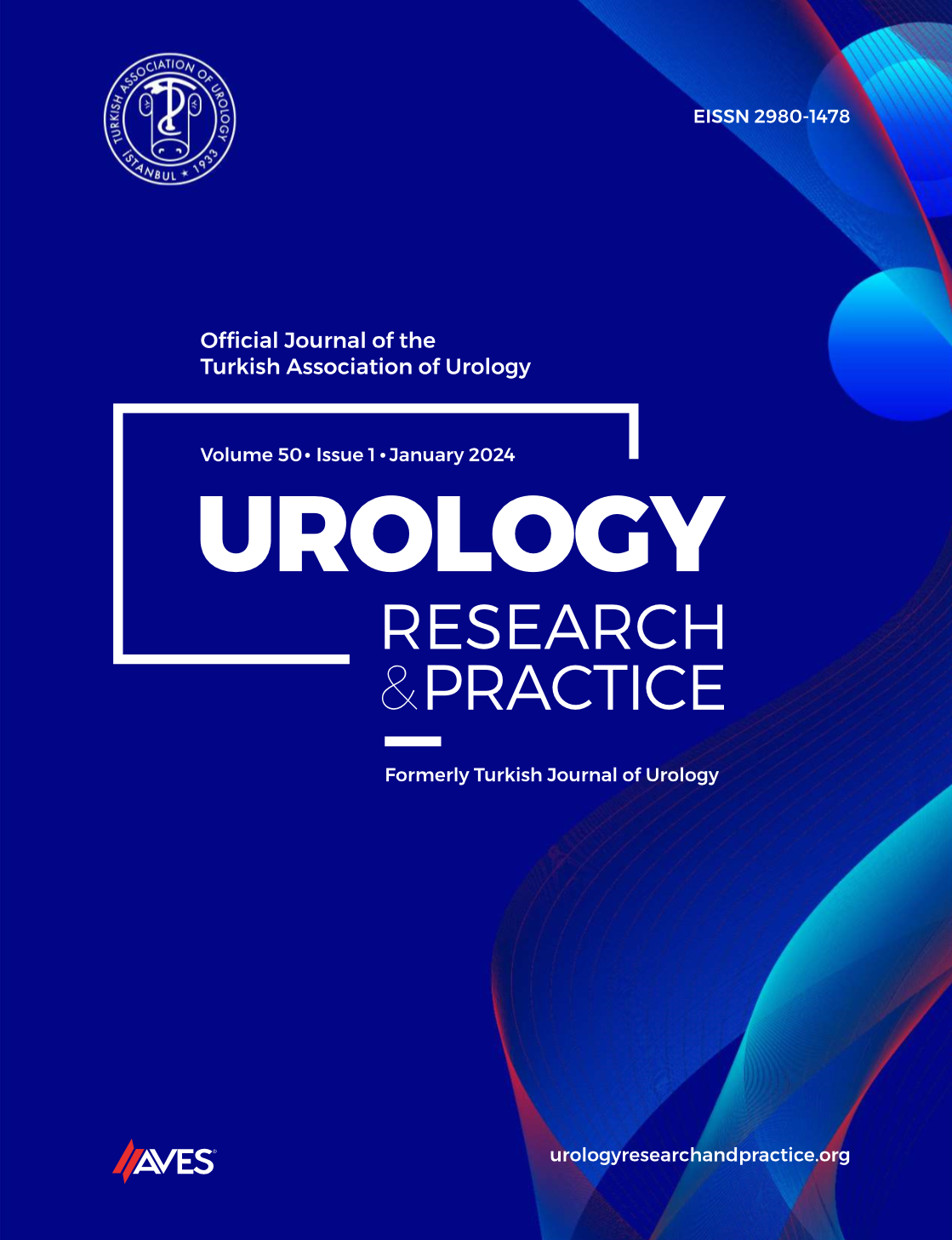Abstract
Objective: In the early period after renal transplantation, urinary retention stemming from bladder outlet obstruction (BOO) may directly affect graft success. The aim of this study was to evaluate the early and long-term outcomes of transurethral resection of the prostate (TURP) and transurethral incision of prostate (TUIP) procedures performed in the first month following RT due to BOO.
Material and methods: Between February 2009 and March 2016, 38 male patients underwent TURP/TUIP due to BOO within the first 30 days of renal transplantation. The urodynamic and renal function assessment results of all patients were collected during the pre-and postoperative periods. All patients were followed up for a minimum of 12 months for short and long-term complications. The results were evaluated retrospectively.
Results: The mean age of the patients who underwent operations was 59.2±12 years. The median duration of dialysis was 41 months (range 0-180). Before the operation the mean serum creatinine (sCr) level was 1.8±0.7 mg/dL, the mean total PSA level was 1.6±1.1 ng/mL. Of the voiding parameters, the mean Qmax and Qave were measured as 8.2±4.5 mL/sec and 4.6±2.5 mL/sec, respectively. The median post-micturition residual urine (PMR) was 105 mL (range 10-400). TURP/TUIP operations were performed at a median of 19 days (range 8-30) after renal transplantations. None of the patients experienced major complications. In the early postoperative period, 5 patients (13.1%) developed urinary tract infection. The mean decrease in sCr in the first month following TURP/TUIP was 1.4±0.4 mg/dL (p<0.001). The mean Qmax (22.4±11.1 mL/sec), and Qave (11.7±5.4 mL/sec) increased significantly (p<0.001), while the median PMR (15 mL, range 0-205) decreased significantly (p<0.001). The mean follow-up period after the procedure was 46.8±23.3 months. During the follow-up period, 3 (7.8%) patients suffered from urethral stricture and 2 (5.2%) patients from bladder neck obstruction.
Conclusion: In the surgical treatment of urinary retention arising from BOO in the first month following renal transplantation, TURP/TUIP yield safe and successful results. In addition, regarding the short and long term outcomes, these procedures may be safely performed with low morbidity.
Cite this article as: Sarıer M, Duman İ, Demir M, Yüksel Y, Emek M, Kukul E. The outcomes of transurethral incision/resection of the prostate (TUIP/TURP) performed early after renal transplantation. Turk J Urol 2018; 44(2): 172-7.

.png)


.png)